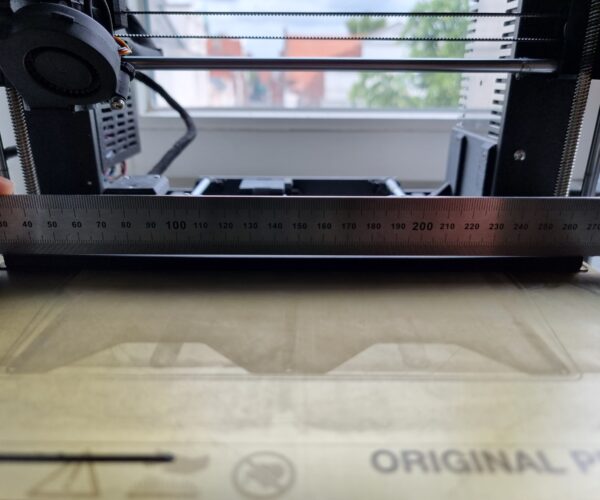What does Mesh Bed Levelling actually do in detail?
I'm familiar with the rough concept of MBL but i'm wondering how it actually behaves across the whole model.
Let's say i model a 200x250x5mm block, essentially covering the whole print bed of my mk3 to a height of 5mm. If i now print that on a warped bed, does the algorithm distort the whole model so it follows the bed contour at a uniform 5mm distance?
like so:
or does it try to average out the bed height and then aim for a top surface that is flat with respect to the printer axis like so:
And does the height of the model make a difference in this?
I've tried looking this up myself of course but i haven't seen any mention of this specific aspect so far.
I'm thinking that both methods could be used to deliberately introduce slight curvature to parts by placing bits of paper under the steel sheet at certain positions.
RE: What does Mesh Bed Levelling actually do in detail?
For some reason the marlin fork of prusa firmware did not include the ENABLE_LEVELING_FADE_HEIGHT feature which together with the MESH_CORRECTION_FADE_HEIGHT would wash out the z-correction from the mesh bed leveling until reaching fade_height, resulting in no z-movement when printing a layer above that height. Prusa firmware does still not support the M420 command associated with this feature but the closed issue at GitHub ( https://github.com/prusa3d/Prusa-Firmware/issues/638 ) suggests that a similar feature has been implemented. Unfortunately I am unable to find the corresponding documentation. If somebody knows, I'd also be interested!
If at first you don't succeed, skydiving is not for you.
Find out why this is pinned in the general section!
RE: What does Mesh Bed Levelling actually do in detail?
Good to know what it's called at least.
I did a quick test print of a 200x5x5 block in the meantime and at least at that height the part seems to follow the bed contour. With the setup below, if there was a fade out the center should be thicker but i'm measuring no variation in thickness at all.

